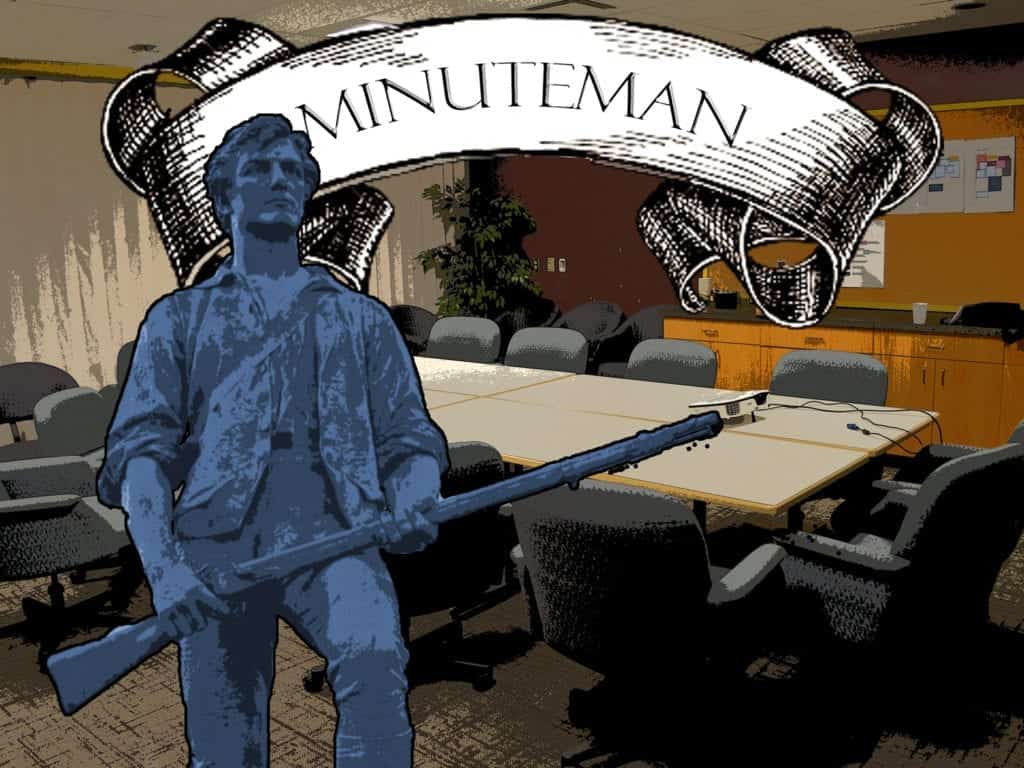Millenials already work hard

author: kristian ferguson | news editor

jeremy davis
I am a millennial. This is likely not a surprise. You probably read the title and assumed as much. In being a millennial, I am a little defensive of my arbitrary generational gap title and the people who fall into this category.
I normally don’t care for the usual “millennials killed ]x]” or “millennials don’t engage in [x]” comments, but there is one that gets my goat every time. The idea that millennials don’t work hard is not only absurd, but it’s factually incorrect.
This is not to rag on your preferred generational gap identifier. I’m sure your generational gap identifier worked very hard too, but there is something particularly problematic with the state of work for millennials.
I’ll start with my anecdotal evidence. I work two jobs, three jobs during certain seasons. I am also a full-time student. I live in a relatively alright rental, I’m financing a car (which I wish I didn’t have, but that’s a different op-ed article), have all the usual bills of day to day life, and live with my partner. We barely scrape by some months.
My two (three) jobs all expect a different kind of labour or work from me, and it leaves me feeling drained, tired, and exhausted. I don’t normally have days off; I have what my partner calls “days less.” Days in which I only have school or only work at one job are “days less.” I would love to be a “lazy millennial,” frankly, but it’s maintain this level of work or starve.
The worst part is that I am not the only millennial I know who experiences this days less phenomenon. Millennials are forced into these kinds of positions in order to pursue a better education, a better pay, or simply just to survive.
Similarly, the prevalence of the gig economy encourages the creation of casual, low-paying, high-stress jobs instead of better paying and more secure permanent jobs. There has always been something sinister to me about the Skip The Dishes method of having your workers almost entirely rely on tips. They effectively expect the customer to pay their employees. Before anyone gets up in arms, I do know that the company also provides these couriers transit pay, but it is negligible at best.
The millennial attitude toward self care, making indulgent purchases, or spending money on experiences rather than saving are indicative of a whole population of people desperately looking for momentary, fleeting, moments of relief in their busy, overcrowded schedules. God forbid this be further complicated by having a child, or by your physical or mental health.
To focus on more objective accounts, productivity vs. wages in Canada and the U.S. are growing wildly more disproportionate. To make this really easily visible, you can Google “Canada Wage Productivity Graph.”
I don’t make any claims to be an economist of any kind, but what I can see is that productivity continues to climb, and wages continue to grow, but nowhere near the same rate. In comparison to when many would argue the middle class in the North America was at its strongest, the ‘50s-‘70s, there is a massive disconnect.
During this period, wages and productivity were fairly closely related. Similarly, the rates of unionization in Canada have been steadily falling as well. I do not think that this is a trend of young Canadians opting out of unions, but rather a trend of young Canadians feeling like they don’t have a choice but to accept their workplace for what they are.
Studies show that young Canadians would be willing to vote a union into their workplace if they were given the opportunity. What I fear is that young Canadians are afraid of pursuing a union drive for fear of retaliation by their employer. The prevalence of casual, part-time, and contract work among young people is disproportionately high and if you are also in school or caring for a child, it may feel too risky to pursue union activity when that job might be one of very few lifelines you have.
Millennials do work hard. We are more accepting of harder, less beneficial work positions largely out of necessity. There is, thankfully, some respite for a few. If the trades are of an interest to you, that is an industry that has classically had very high union enrolment and, additionally, tends to pay relatively well.
Because I am writing an op-ed, I get a little bit of freedom to inject my own personal feelings in as well. A rare treat for this ‘ol news editor, and here it is: I would encourage any employee in any sector to unionize. There is nothing to lose in electing peer representatives to ensure that your workplace properly represents and compensates you.
Your boss does not care for you; they are actively interested in ensuring that you are reliant on and subservient to them. That ensures that you will accept jobs that you are underpaid for, work unpaid overtime, and have no benefits. Your boss’ motive is to produce as much of a profit as possible and anything that technically gets in the way of those things (benefits, living wage, etc.) are inherently antagonistic to your boss’ goals.
Spicy opinion section is over. In summary, millennials do work hard, harder than many previous generations. We work multiple jobs, casual jobs, and contracted positions at an incredibly higher rate in order to survive. Millennials have had the spirit of unionization squashed out of them by increasingly more desperate living circumstances and it shows. We millennials work hard but we could be working more comfortably.









